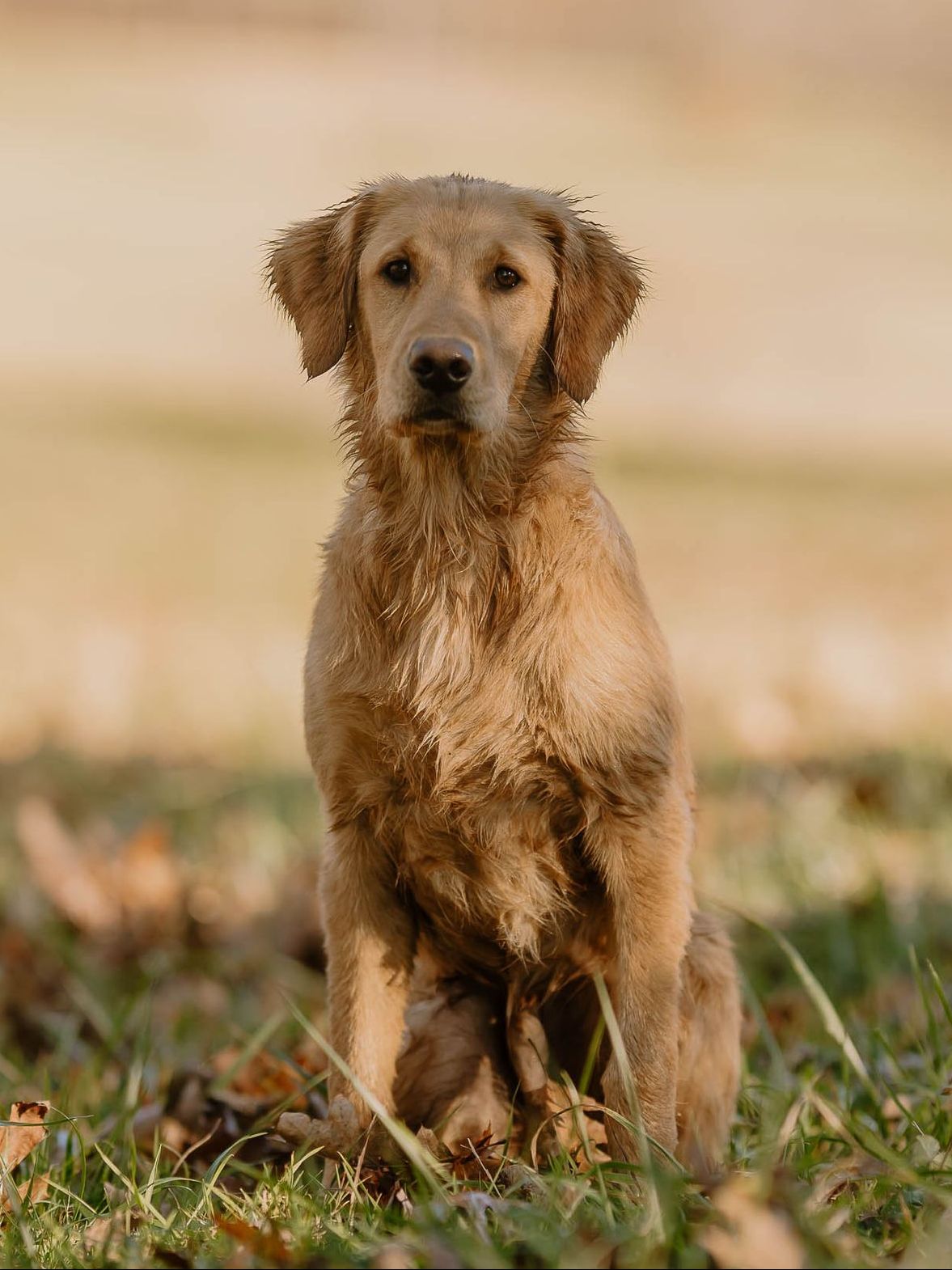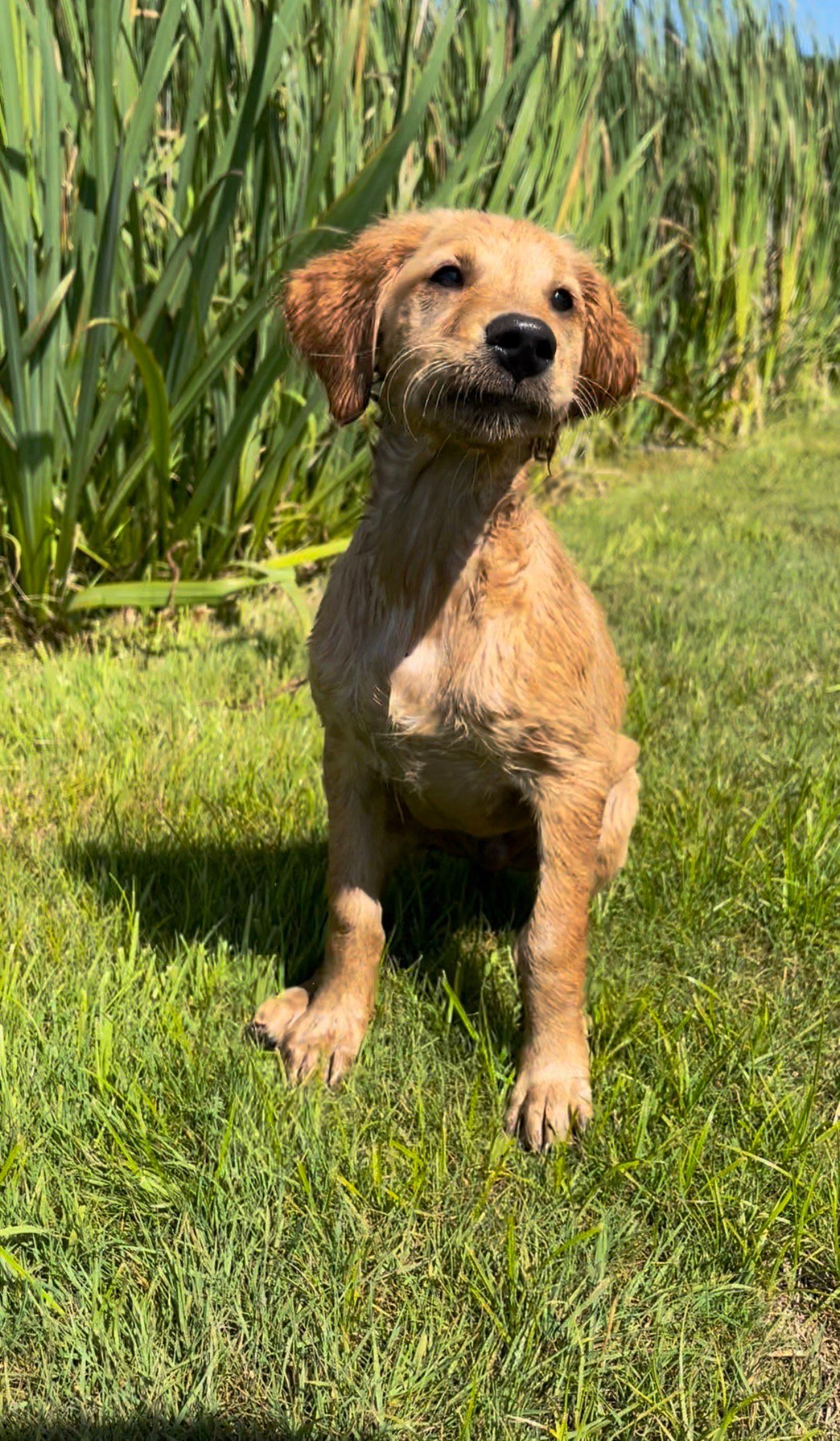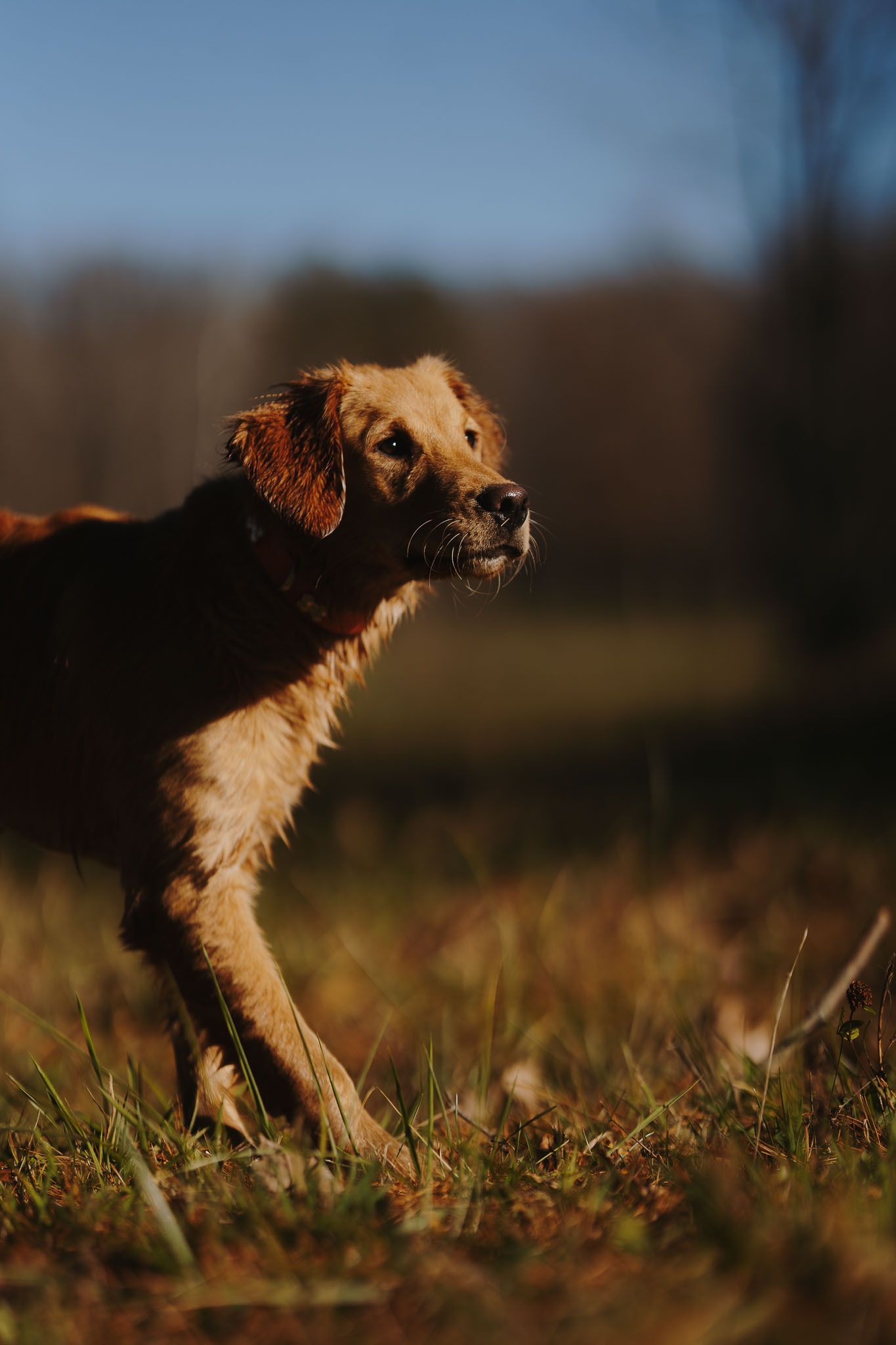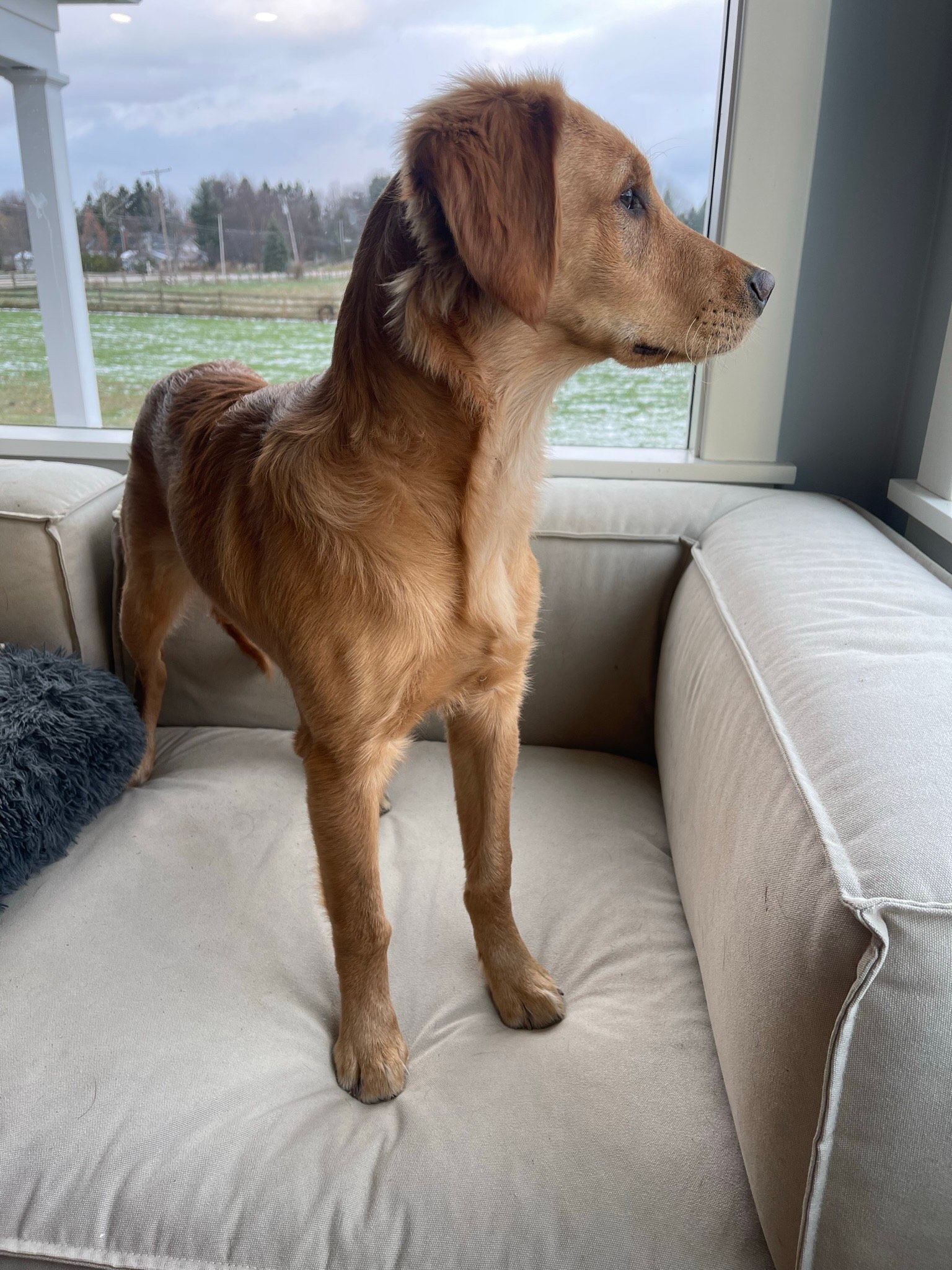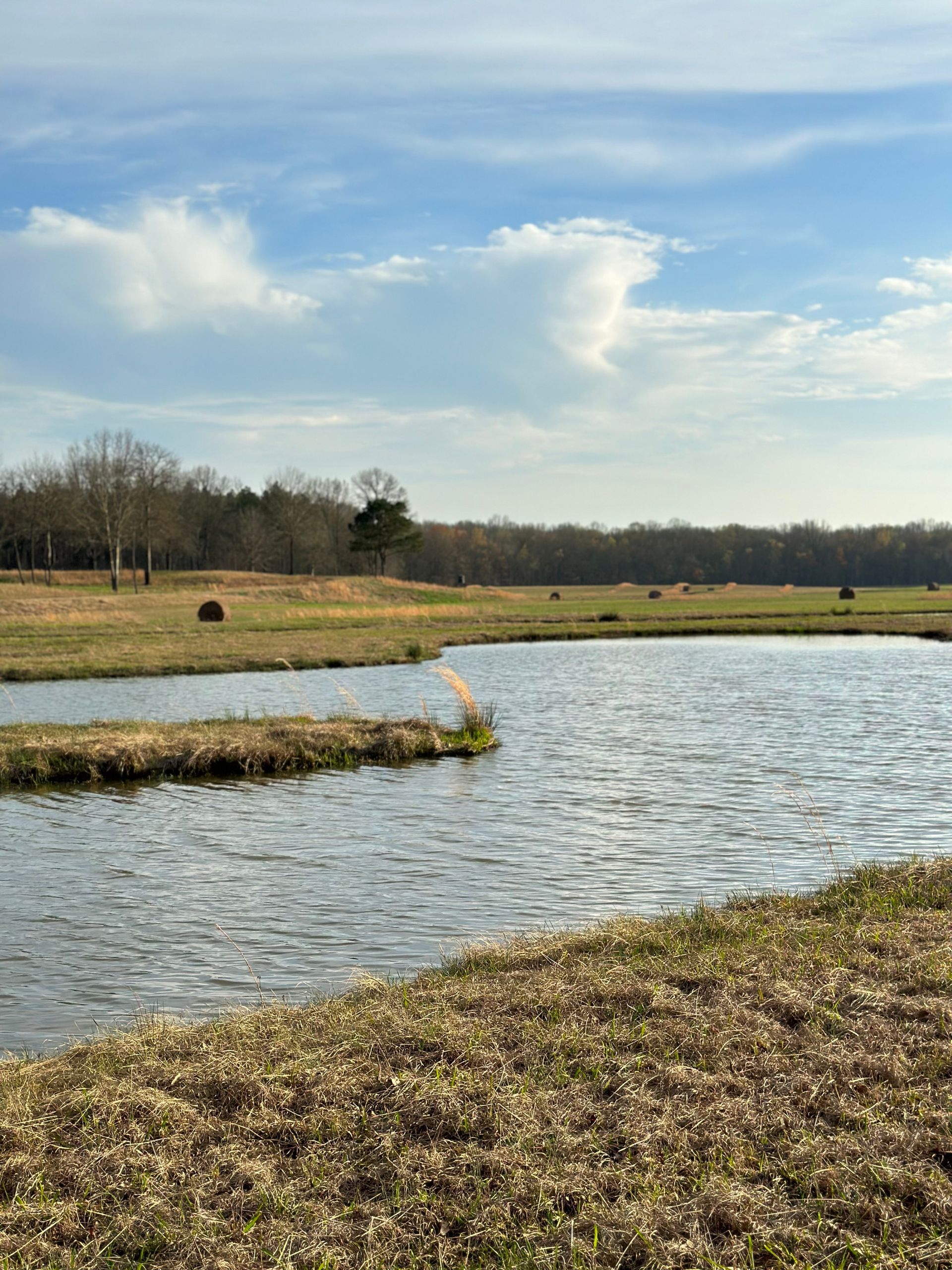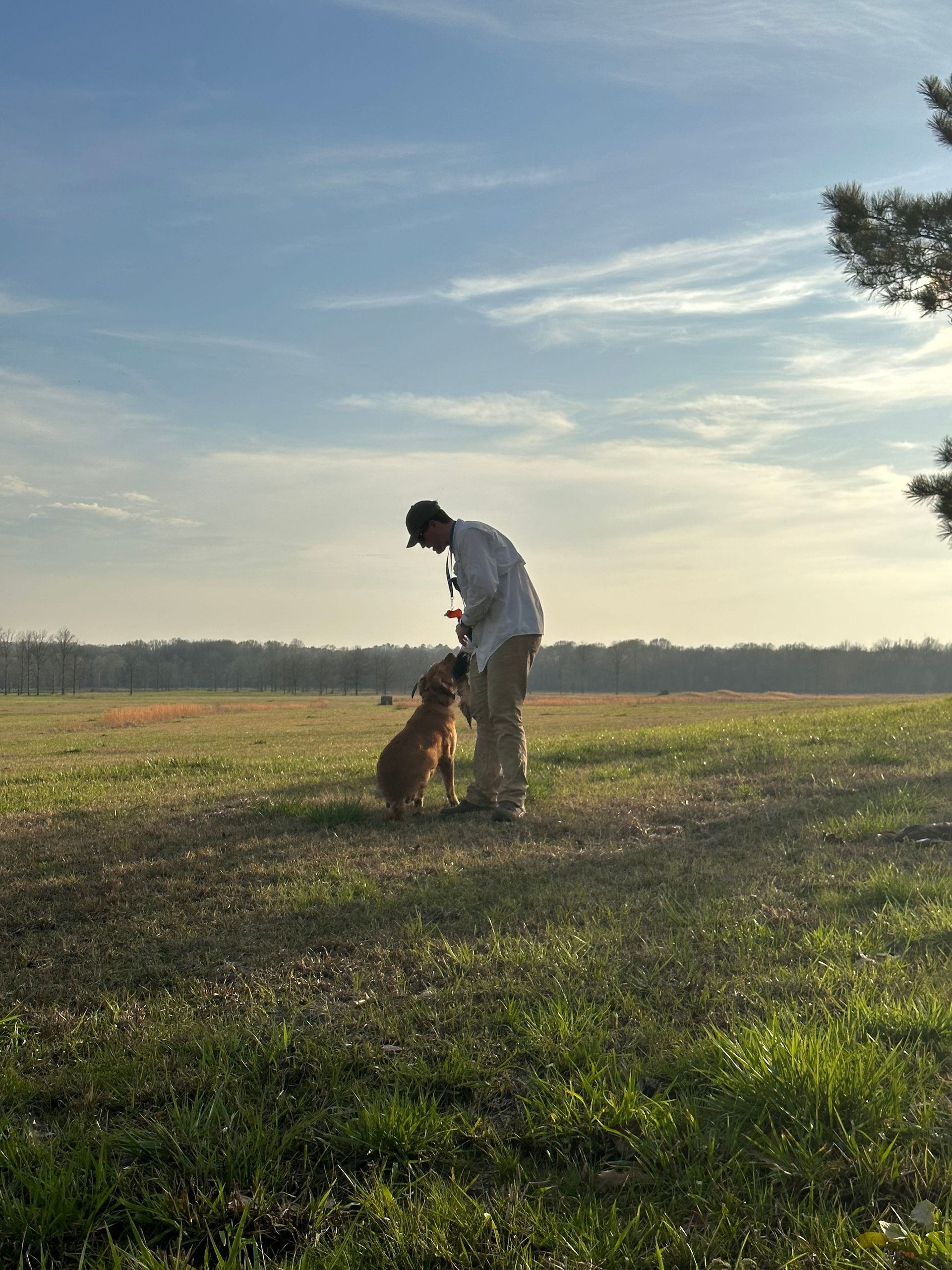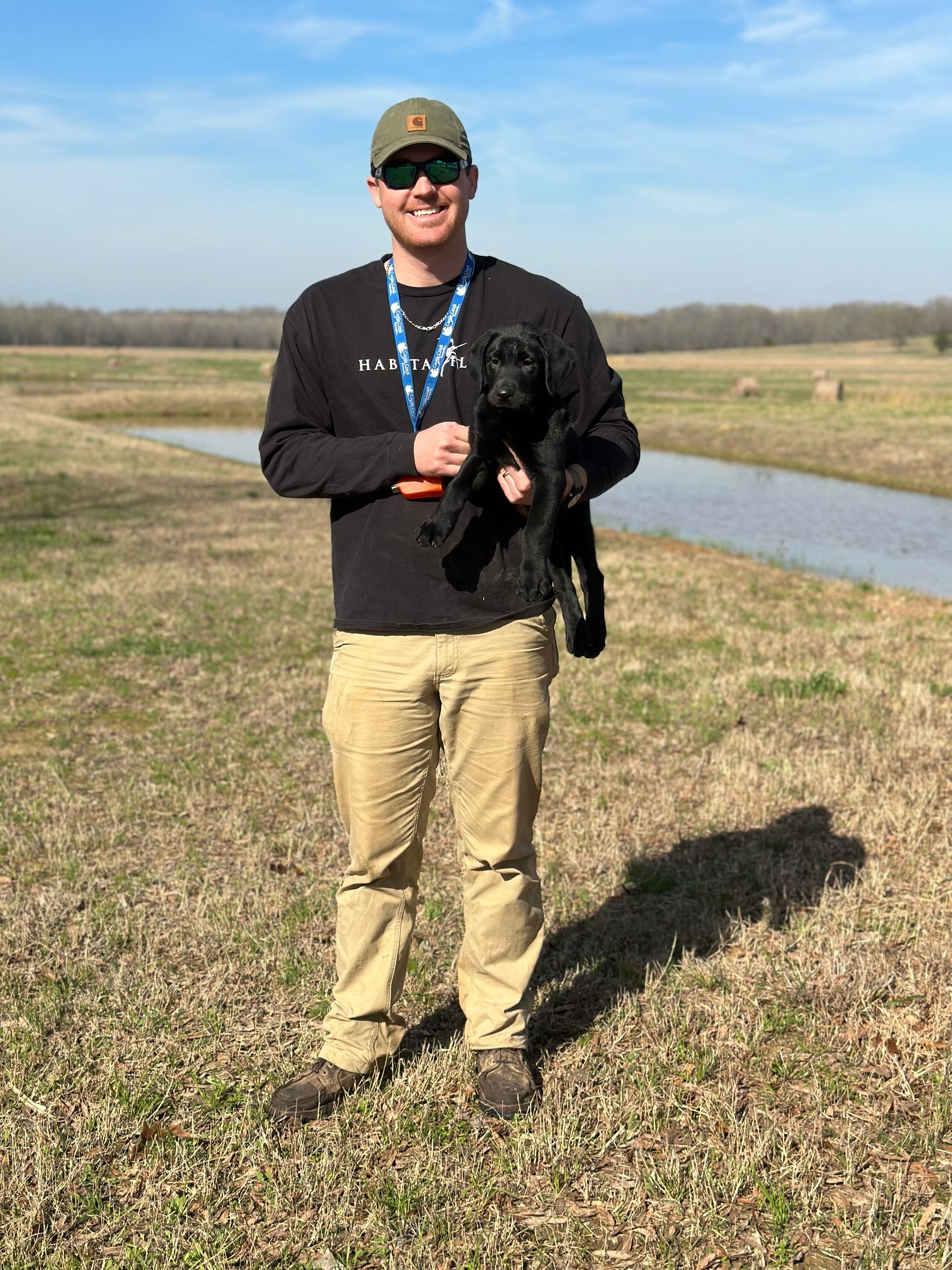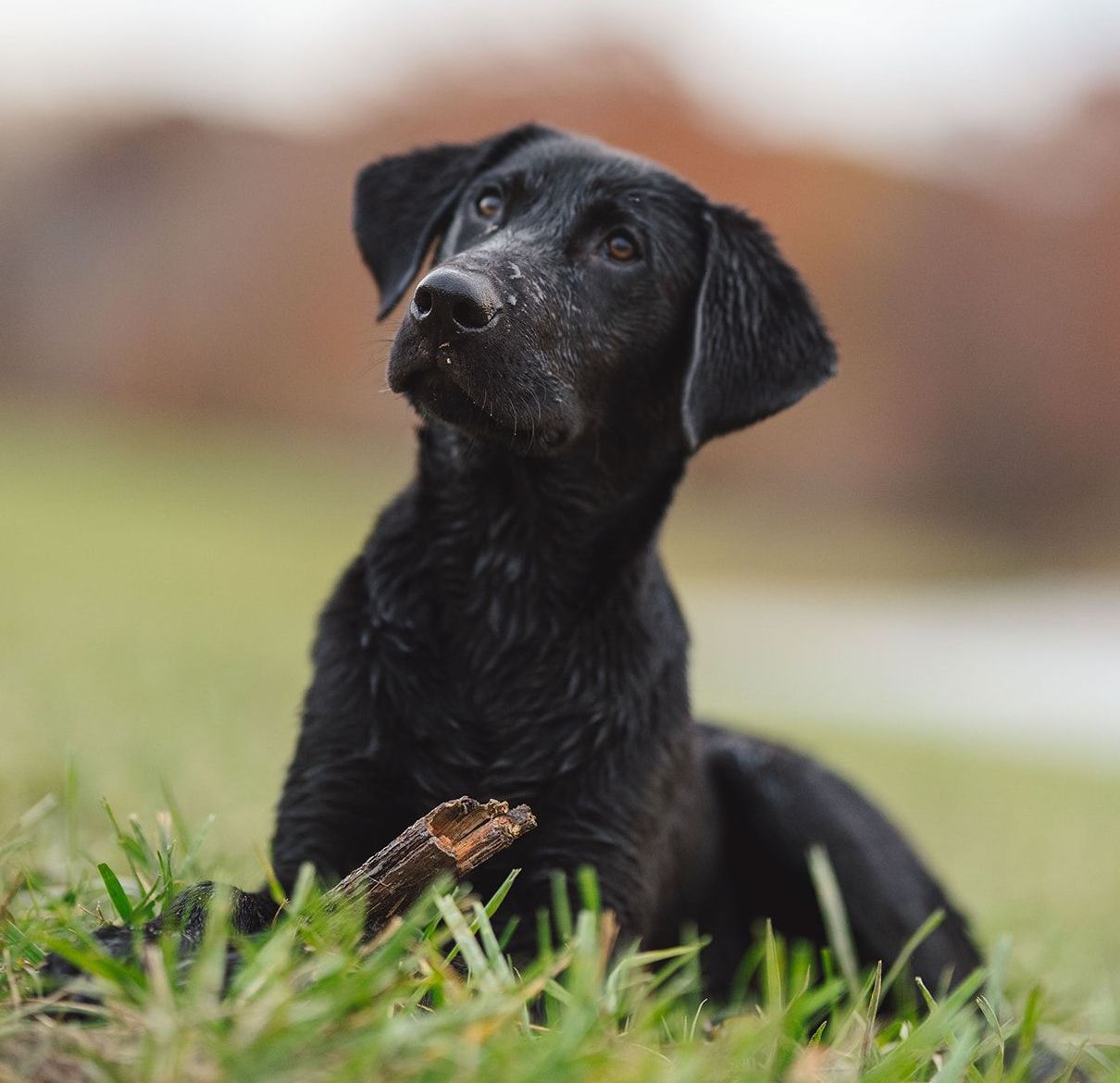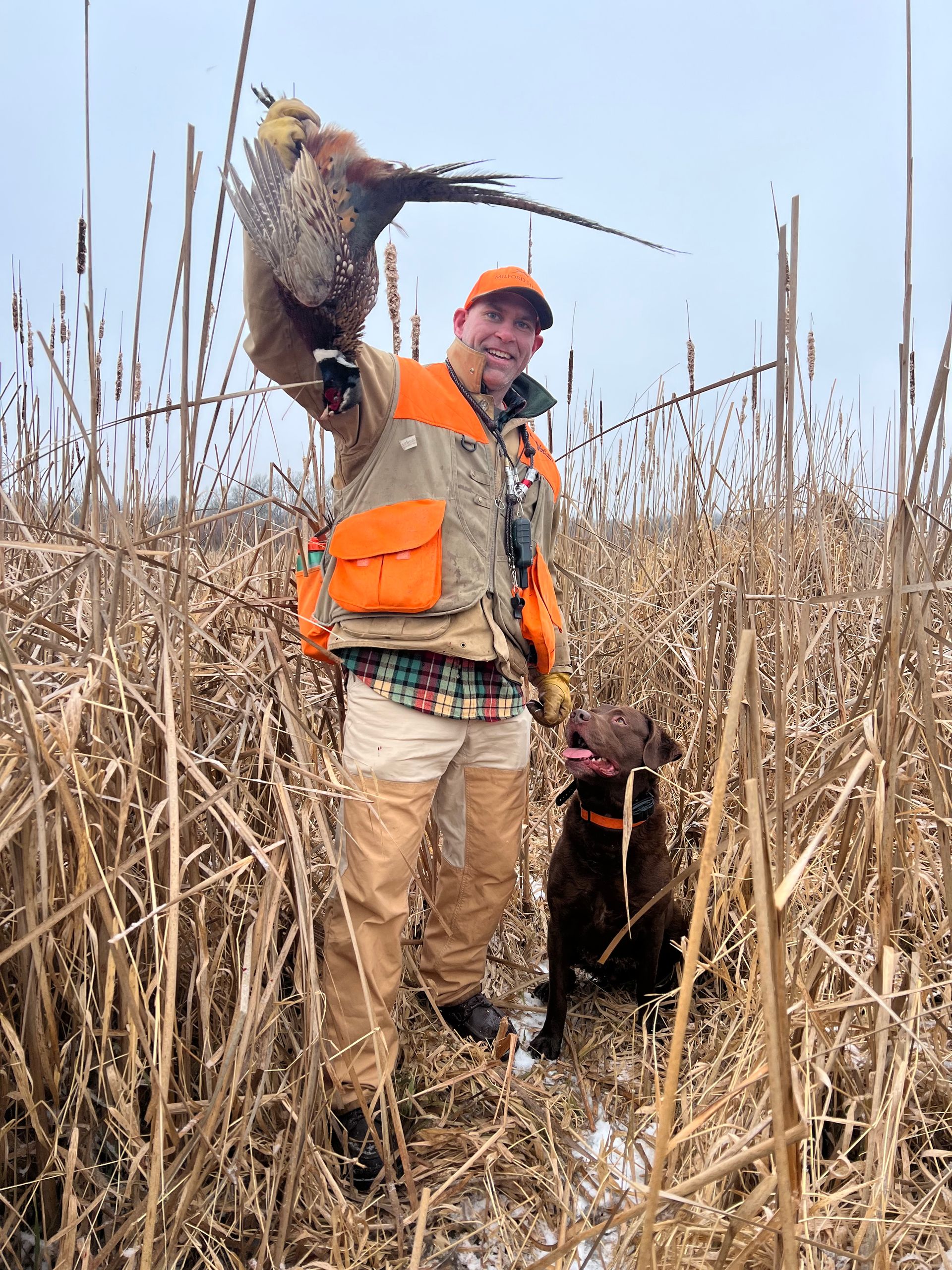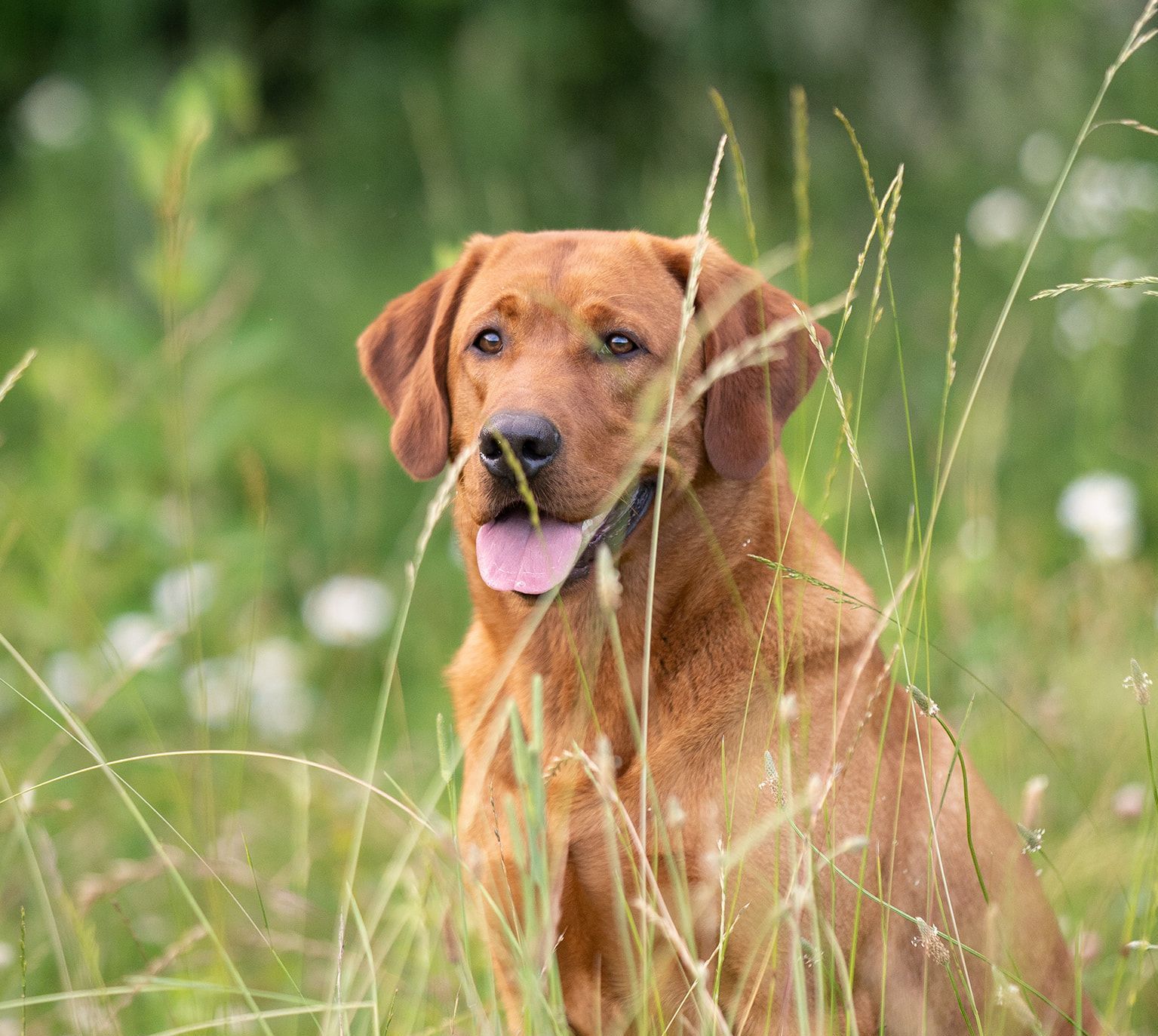Here I was, sending my dog off again after I vowed to keep this one out of the retrieving game. It's a real commitment of time and money, and it's difficult to know which way to turn in this dog world.
I got Briggs on a whim. I was visiting my other dogs at their trainer in Missouri, and he had a glorious litter of Goldens, two of which were more than were counted for in the womb. The smaller of the two pups (he was tiny from placement in the womb) put a golden spell on me the minute I held him, and I knew I had to have him. A few moments later, I found myself driving back to Ohio with a puppy in the car. And I swore I would NEVER get a Golden again, but here he was! In all his tiny glory - General Briggs Got Your Six was officially a Field Dog Life family member.
When I arrived in Ohio and held this sweet pup in my arms, I vowed he would be our farm dog, and we would love him up, but without competition aspirations. It was hard enough with my other boys; I couldn't bear to part with the sweetest little pup I ever saw! No! Briggs was going to be our family dog. The sidekick. The Golden teddy bear, love bug, lazy porch dog.

